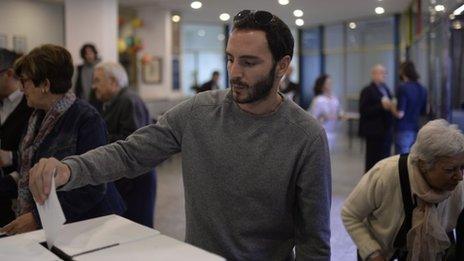Catalonia vote: No smiles for Spain
- Published
Fernando Sanchez Costa, Catalan MP: "It was an illegal referendum"
Catalans wanting independence are elated by the outcome of Sunday's non-binding, unofficial vote in the region - but Spain's ruling Popular Party (PP) is sticking to its constitutional guns for now.
The head of the regional government, Artur Mas, said Catalans had "earned the right to a referendum", after 80% of voters said they wanted to break away from Spain.
However, Spanish Justice Minister Rafael Catala dismissed the ballot, which had to be conducted outside the normal electoral process because of legal attempts to block it, as a "useless sham".
In Barcelona itself, the local branch of the PP sounded more nuanced in its reaction.
Fernando Sanchez Costa, a PP member of the Catalan parliament, where the party has 19 MPs out of 135 in the chamber, said it was a "sad day" for Spain.
Just as Europe was feting 25 years since the fall of the Berlin Wall, nationalists in Catalonia had sought to erect new barriers between people, he argued when we met at the parliament.
Rejecting accusations that the PP was authoritarian and closed to compromise, he observed that the majority of Catalonia's electorate had not voted on Sunday.
Based on the Catalan government's preliminary data, 41.6% turned out.
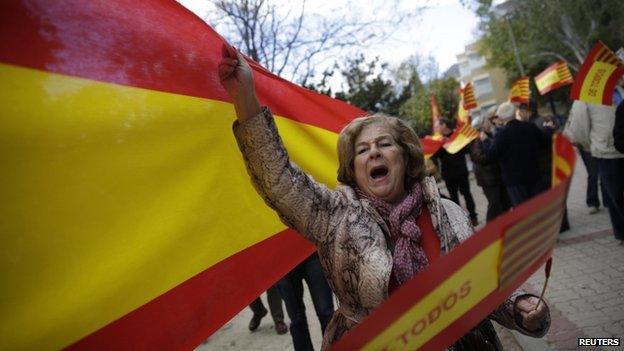
Unionists in Madrid protested against the vote
The PP politician's hope is that the majority who stayed at home, as well as the reported 4.5% who did turn out but voted "no" to independence, will reject the nationalists at future elections.
However, the maths is not quite that simple. At the last elections in Catalonia, in 2012, turnout was 68% or just under 3.7 million.
Had the turnout been the same on Sunday, the independence voters would have won a healthy majority, if not quite two-thirds, and the pro-independence camp is delighted.
Night of smiles
Campaign press officer Adria Alsina could not sleep for excitement well into Sunday night.
"You tell me any country in the world that has mobilised 40% in any non-electoral process," he challenged me when we chatted on Monday afternoon.
"Everyone's wearing a perpetual smile," he told me when asked how the campaigners were feeling.
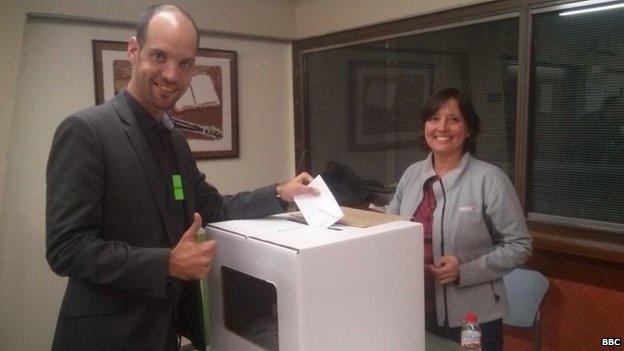
Independence campaigner Adria Alsina casting his vote
What, I asked, about this idea of Spanish Socialist opposition leader Pedro Sanchez that the Catalan vote should spark a reform of Spain towards a more federal model?
"That would be up to the Catalans but I don't see his proposal going anywhere," he replied.
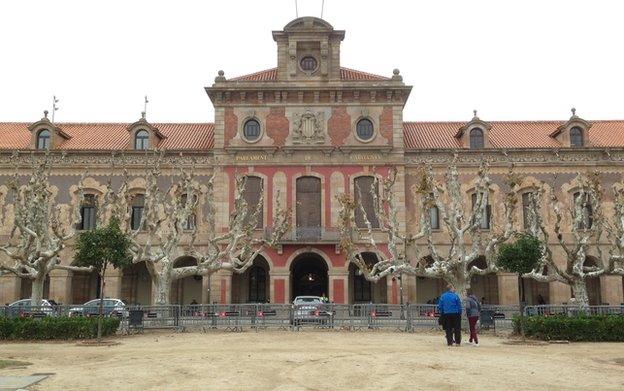
Metal security barriers have been erected outside the Catalan parliament
'An important movement'
Of course, it is the PP holding all the cards for now, so I asked Fernando Sanchez Costa about the likelihood of a negotiated exit from this impasse.
"It is clear there is an important movement in Catalonia asking for independence," he said.
"The Spanish government is studying what's happening in Catalonia and it has always said we are ready for dialogue over things that could be better in the Spanish constitution, and in the relationship between the Catalan government and the Spanish government."
As for the idea of a federal model, he said Spain was already "more or less a federal state" and Catalonia enjoyed a high degree of autonomy.
As we stepped outside, I remarked on the security barriers along the pavement opposite the parliament building.
The metal barriers were nothing special, he said, they had been there for a while. And they will be there another while yet, I thought.
Patrick Jackson reports from a polling station in Catalonia
- Published10 November 2014
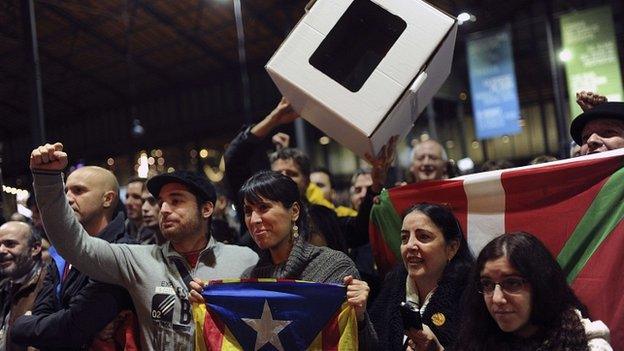
- Published7 November 2014
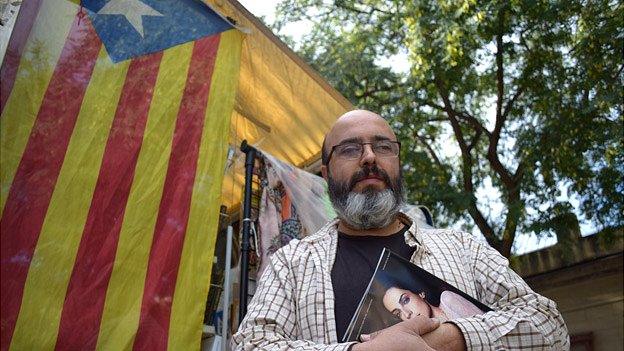
- Published21 August 2023
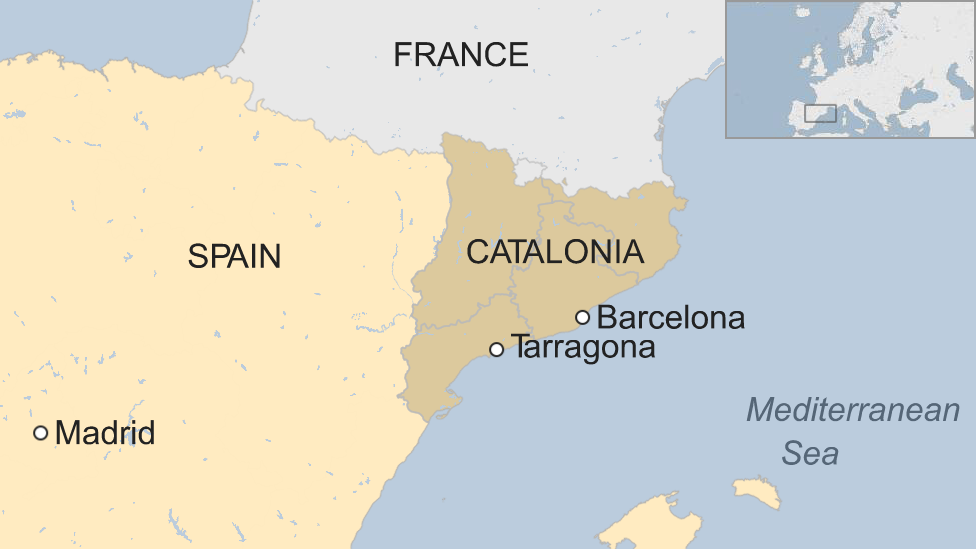
- Published9 November 2014
